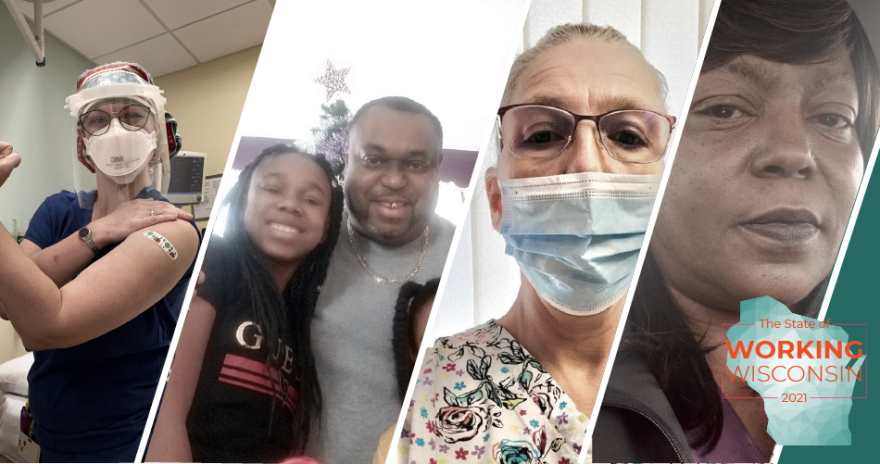The pandemic has exacerbated and brought to light inequities in the low-wage labor force. Many employees are demanding better working conditions, benefits, and wages to have a more sustainable lifestyle.
Formerly known as the Center on Wisconsin Strategy, COWS released their annual labor report over Labor Day weekend. It looks at the pandemic's impact on the state's job market, profiles essential workers, and explores the power of unionizing. Because of the pandemic, the annual labor report is now made available online.
The report highlights discrepancies seen across the nation. It found healthcare workers faced exhaustion; primarily certified nursing assistants dealt with high mortality rates and the emotional stress of being the primary contact for sick individuals. Food service and hospitality workers lost their jobs at higher rates than others, and that sector is still 20% below where it was before the pandemic.
Laura Dresser is the Associate Director at COWS at the University of Wisconsin-Madison. Dresser points out, "The very workers who have the lowest wages, the weakest benefits, lack of health insurance -- those jobs, which exist in our labor market, were the very workers who lost their jobs or were exposed through work."
Dresser explains, "The pandemic really crystallized some of these issues, like, we're going to call these workers essential. But their jobs are not structured in a way that allows for the things that we think are essential to life."
The report also found unions are in decline in Wisconsin at a rate more rapidly than neighboring states. However, workers continue to organize, even when the institutional structure of getting union representation makes it difficult. Most notably, Milwaukee's Colectivo Coffee workers have voted to unionize, marking a pivotal turn in how the state interacts with budding unions.
"This speaks to the real importance of state policy. And the way that states have a lot to do with unions as well. So that's a kind of important difference about Wisconsin. And that's maybe why it's so inspiring to see things like Colectivo and other work of unions and working people organizing, because the ground is really hard against them, and you still see workers organizing," Dresser notes.
Dresser says the pandemic made it clear that now is the time to restructure the nation's lowest wage jobs.
"These things are really going to be what we need, we need a new normal, and we learned it better, and we saw it more across the pandemic. And I hope that that's what this pandemic does for us," she says.






